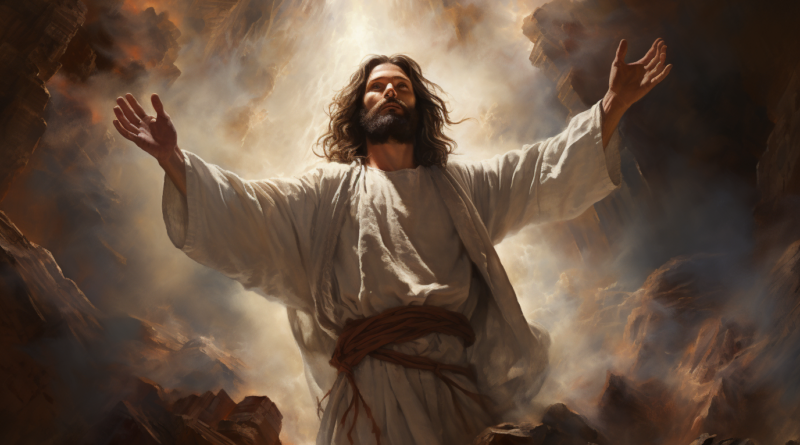Did God die?
One of the most significant events in Christian belief is the death and resurrection of Jesus Christ. However, when viewed through the lens of Trinitarian theology, this event presents an inherent paradox. If Jesus, as God, died on the cross, how could He also raise Himself from the dead? For those who uphold Trinitarian doctrine, this question demands a nuanced exploration.
Trinitarians argue that only Jesus’s human nature died on the cross, while His divine nature remained unscathed. This duality, they suggest, allowed the divine Jesus to resurrect the human Jesus. This explanation, however, presents multiple issues, not least of which is the introduction of a certain dualism into the nature of Jesus. It seems to contradict the Trinitarian belief that Jesus was not two persons – one human and one divine – but rather one person with two natures.
Furthermore, this explanation raises additional questions about the nature of God. If the divine Jesus, who is God, did not die, was the sacrifice of Jesus complete? And if it wasn’t God who died on the cross, how does the crucifixion satisfy the requirement of divine justice?
Turning to the scriptures, the Trinitarian interpretation appears to diverge from the Biblical narrative. The Bible explicitly states that it was God who raised Jesus from the dead (Acts 2:24, 3:15, 4:10; Romans 10:9; 1 Peter 1:21). These verses make no mention of Jesus resurrecting Himself. Trinitarians might counter that Jesus did claim the ability to raise Himself in John 2:19-21, but this could also be understood as Jesus prophesying about his resurrection by God, not literally stating he would do it himself.
In contrast, the Unitarian view presents a clear and consistent understanding of the death and resurrection of Jesus. Unitarians believe Jesus was wholly human, not divine. His death was a complete death, not divided between two natures. His resurrection was a miracle performed by God, not an act of self-resurrection.
This interpretation aligns with the Biblical account. It upholds the notion of a loving God who vindicated His faithful servant, Jesus, raising him from the dead and exalting him to a position of authority (Philippians 2:8-9). It underscores the role of Jesus as the Messiah, whose obedience unto death provides a model of faith for all believers. It also upholds the integrity of God’s justice. By raising Jesus from the dead, God demonstrated that death is not the final answer for those who faithfully serve Him.
The Unitarian understanding preserves the integrity of the sacrificial act on the cross, as Jesus was not part-God suffering part-death. Rather, he was fully human, experiencing a real, full death. It underscores God’s role in salvation, as it was God who validated Jesus’ message and ministry through the miracle of resurrection.
In conclusion, the Trinitarian attempt to explain the paradox of Jesus’ death and resurrection appears to create more questions than answers. It introduces a dualism into the nature of Jesus and poses challenges to the understanding of God’s justice. On the other hand, the Unitarian viewpoint offers a coherent and biblically grounded understanding of these central Christian events, bolstering the case for God’s unity and the human Messiahship of Jesus.

